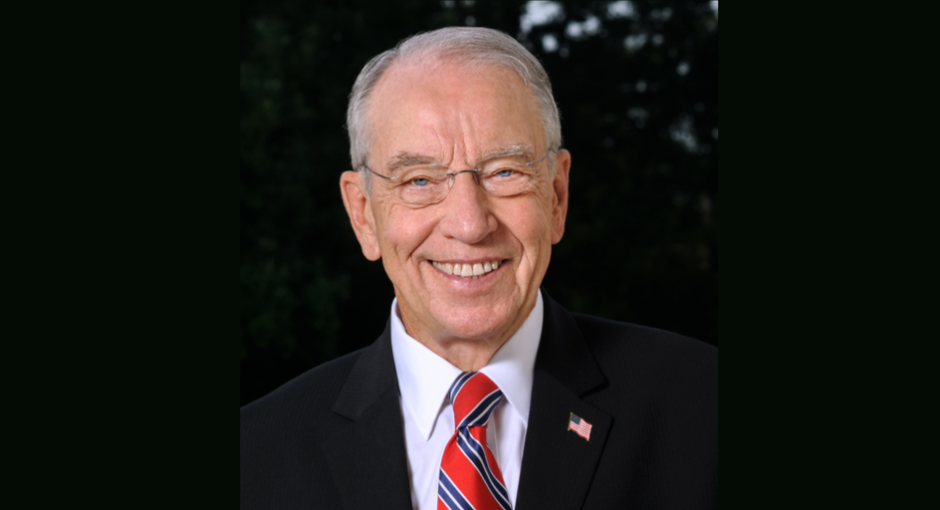Senate Finance Committee ranking Republican Chuck Grassley (Iowa) yesterday asked the U.S. Health and Human Services Department of Inspector General (OIG) if it plans to punish seven drug companies over their denials of 340B pricing when hospitals, health centers, and clinics use contract pharmacies.
Grassley has had a hand in the 340B program perhaps longer and more consistently than any other current member of Congress. He led a well-publicized investigation into hospitals participating in the 340B program several years ago but has also raised concerns about drug manufacturer actions.
In a May 2 letter to HHS Inspector General Christi Grimm, Grassley observed that HHS’s Health Resources and Services Administration (HRSA) since September has referred seven manufacturers to Grimm’s office for potential imposition of up to $6,323 in penalties for each instance of overcharging due to the companies’ 340B contract pharmacy policies.
“At the timing of this letter, HHS-OIG has not taken enforcement action related to these referrals,” Grassley said. “I am requesting an update on HHS-OIG’s work and if it plans to take enforcement action against these drug manufacturers.”
Grassley said in a news release about his letter, “I’ve heard from Iowa hospitals and pharmacists about how drug manufacturers have ended 340B program pricing at contract pharmacies and placed administrative burdens on health care providers. It’s important to understand what the inspector general is doing to take action following referrals by HRSA.”
Manufacturers referred to OIG have told shareholders that there could be a material adverse impact on their business if OIG were to impose the civil monetary penalties. HHS transferred the authority to impose 340B program CMPs from HRSA to OIG during the last days of the Obama administration in January 2017. OIG handles this duty for many HHS agencies.
Neither HHS, HRSA, nor OIG have ever said why OIG has not yet imposed CMPs against the seven companies—AstraZeneca, Boehringer Ingelheim (BI), Lilly, Novartis, Novo Nordisk, Sanofi, and United Therapeutics. All seven are suing HHS and HRSA over the agencies’ findings that the companies’ conditions on 340B pricing related to contract pharmacy are in direct violation of the 340B statute and must end. BI’s suit has been stayed pending resolution of the other six cases, all of which are before federal appeals courts.
HRSA referred AstraZeneca, Lilly, Novartis, Novo Nordisk, Sanofi, and United Therapeutics to OIG for possible imposition of CMPs in September 2021. It referred BI this March.
In January, a bipartisan group of six U.S. House members urged HHS “to move quickly to enforce the law and begin assessing civil monetary penalties on manufacturers that have denied 340B pricing to providers.”
In his letter to Grimm, Grassley also recounted the ups and downs of the 340B administrative dispute resolution process. A Biden administration proposed regulation to replace the Trump administration final rule that set up the 340B ADR system has been stalled at the White House Office of Management and Budget for months.
Grassley also mentioned in his letter the Biden administration’s withdrawal of the Trump administration’s HHS advisory opinion that covered entities are entitled to buy drugs at the 340B ceiling price without regard to how they choose to dispense the drugs.
Grassley closed the letter by stating he remains committed to passing bipartisan legislation to lower drug prices that he negotiated with Senate Finance Chair Ron Wyden (D-Ore.) during the summer of 2020.
An OIG spokesperson said this morning, “We received the letter and are reviewing it for appropriate action. We have no additional information at this time.”
It is all but certain that OIG will send Grassley a response. Whether or when that response will become public is not known. HHS does not have to routinely release it to the public, and neither does Grassley’s office.


